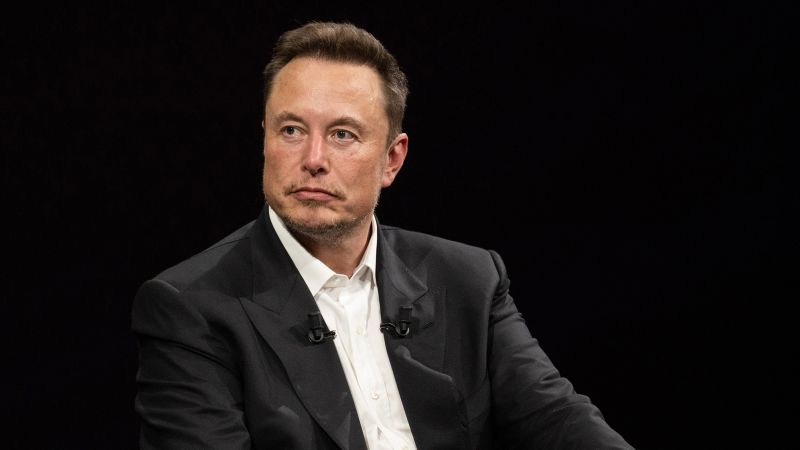Elon Musk sat down with British Prime Minister Rishi Sunak in a conversation that dove into the dangers of artificial intelligence on Thursday, capping off the UK’s inaugural AI Safety Summit.
The two men spoke in an interview-style chat from a stage at Lancaster House, a government venue in central London often used for diplomatic purposes. Musk has been present throughout the two-day event held mainly at Bletchley Park, the headquarters for the Allied Forces codebreaking program during World War II, along with US Vice President Kamala Harris, OpenAI CEO Sam Altman, and other notable politicians and global tech leaders.
“I’m glad to see at this point that people are taking AI seriously,” Musk said. “Thanks for this summit. I think it will go down in history as quite important.”
In the first day of the event, over 25 countries and the European Union signed the Bletchley Declaration, agreeing to work together to create a united approach to oversight in efforts to deploy AI technology in a “human-centric, trustworthy and responsible” way, underscoring the “potential for serious, even catastrophic, harm” that many tech leaders have expressed concern over.
Chinese officials were also present at the event, according to Reuters.
Musk’s conversation with Sunak is one of numerous chats with world leaders the SpaceX and Tesla CEO has joined in the past few months. Musk met with Israeli Prime Minister Benjamin Netanyahu in California in September, weeks before the outbreak of the Israel-Hamas war. Netanyahu met with Musk to discuss artificial intelligence and antisemitism on the Musk-owned social media platform X, formerly known as Twitter, at a time Musk was warring with the Anti-Defamation League.
Musk also sat down with French President Emmanuel Macron numerous times in the past year. Other big names that recently made time for Musk in their schedule include Italian Prime Minister Giorgia Meloni in June, Indian Prime Minister Narendra Modi in June and Turkish President Recep Tayyip Erdogan in September.
Musk has increasingly become a fixture in international affairs, making headlines not only for his meetings with heads of state but also for the provision – or lack thereof – of SpaceX’s Starlink satellite services in war-torn regions.
The billionaire received backlash this week for pledging to provide aid organizations in Gaza with Starlink satellite service as the besieged strip struggles with internet connectivity. The Israeli Minister of Communications Shlomo Karhi said on X, formerly known as Twitter, that Hamas “will use it for terrorist activities.”
“Perhaps Musk would be willing to condition it with the release of our abducted babies, sons, daughters, elderly people. All of them! By then, my office will cut any ties with starlink,” Karhi posted.
Musk made the announcement on X, which he owns, after US Democratic Rep. Alexandria Ocasio-Cortez said that “cutting off all communication to a population of 2.2 million is unacceptable.”
“Starlink will support connectivity to internationally recognized aid organizations in Gaza,” Musk said in a post replying to Ocasio-Cortez.
In Walter Isaacson’s new biography of the eccentric billionaire titled “Elon Musk,” it was revealed that Musk secretly ordered his engineers not to turn on his company’s Starlink satellite communications network near the Crimean coast last year to disrupt a Ukrainian sneak attack on the Russian naval fleet. CNN was provided the excerpt, which has since been amended, according to a version now published by The Washington Post.
Musk’s decision, which left Ukrainian officials begging him to turn the satellites on, was driven by an acute fear that Russia would respond to a Ukrainian attack on Crimea with nuclear weapons, a fear driven home by Musk’s conversations with senior Russian officials, according to Isaacson.
The billionaire’s presence at the UK’s summit brings an increased level of media attention to the event that is key to Sunak’s hope for global AI regulation.
“I think there’s a lot of concern among people in the AI field that the government will sort of jump the gun on rules, before knowing what to do,” Musk told reporters on Wednesday, according to Reuters. “I don’t know what necessarily the fair rules are, but you’ve got to start with insight before you do oversight.”
The next AI safety summit are set to be hosted by Korea and France and are scheduled for 2024.
Read the full article here










